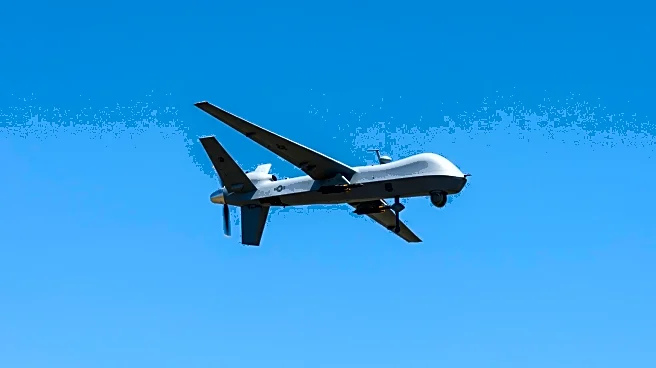What is the story about?
What's Happening?
Defense Secretary Pete Hegseth has dismissed Lieutenant General Jeffrey Kruse from his position as head of the U.S. Defense Intelligence Agency (DIA). This decision follows a controversial intelligence assessment regarding the impact of U.S. military strikes on Iran's nuclear program. The assessment, which was leaked to the media, suggested that the strikes had only set back Iran's nuclear capabilities by a few months. This contradicted statements made by President Trump and Israeli Prime Minister Benjamin Netanyahu, who claimed the program was 'completely and fully obliterated.' The firing is part of a broader pattern of upheaval within U.S. military and intelligence agencies under the Trump administration, which has seen several high-profile dismissals.
Why It's Important?
The dismissal of Lt. Gen. Kruse highlights ongoing tensions between the Trump administration and the U.S. intelligence community. The administration has frequently clashed with intelligence officials over assessments that contradict its public narratives. This incident underscores the potential impact on the credibility and independence of U.S. intelligence agencies, which are critical for national security. The broader implications include potential shifts in military leadership and policy, as well as the administration's approach to handling dissenting views within government ranks. The situation may affect U.S. relations with allies, particularly regarding shared intelligence and coordinated actions on international security issues.
What's Next?
The firing of Kruse is expected to lead to further changes within the U.S. intelligence community. The Office of the Director of National Intelligence has already announced plans to reduce its staff and budget, signaling a possible restructuring of intelligence operations. Additionally, the Pentagon has seen a series of leadership changes, with several top military officials being dismissed or retiring early. These developments may prompt reactions from Congress and other stakeholders concerned about the stability and effectiveness of U.S. defense and intelligence operations. The administration's approach to handling internal disagreements and its impact on policy implementation will likely continue to be scrutinized.















